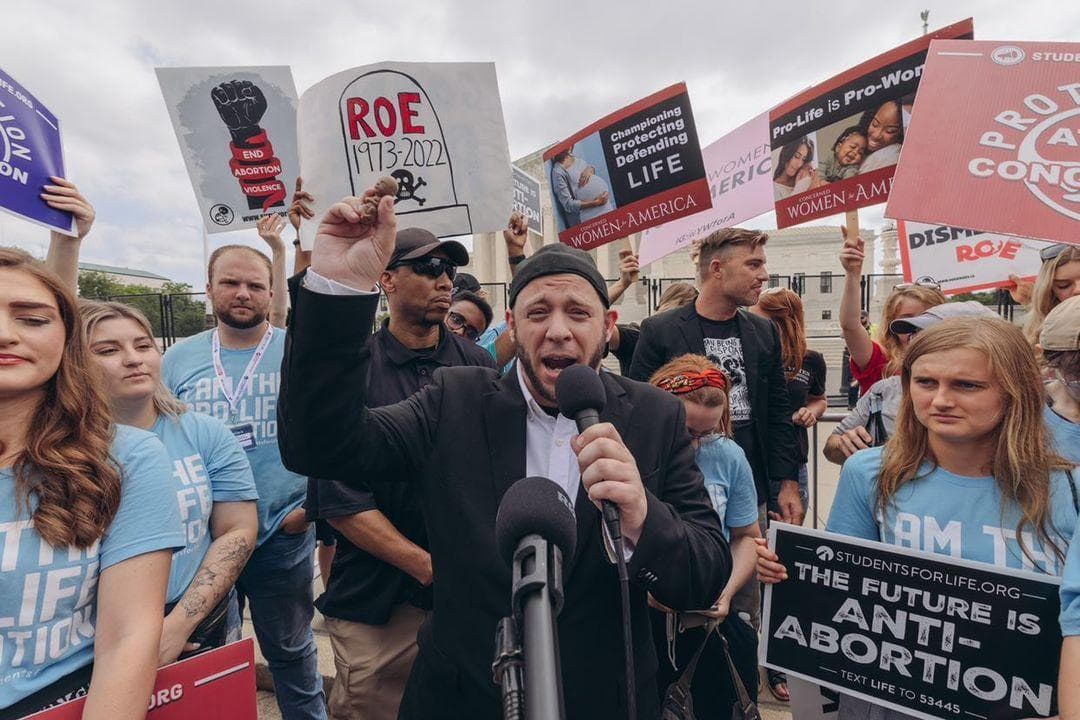Process to create ordinance prohibiting abortions in Quincy to be discussed Friday night at K of C

QUINCY — A Texas man who is the founder of Sanctuary Cities for the Unborn will speak Friday night in Father McGivney Hall at the Knights of Columbus, 700 S. 36th, about the process for achieving a city ordinance that would call for prohibiting abortions in Quincy, a move that would be in direct conflict with state law.
Mark Lee Dickson is a director with Right to Life of East Texas and calls himself a pro-life activist. He claims to have helped 67 cities and two counties in the United States pass ordinances outlawing abortion. The first was in Waskom, Texas, which lies on the border with Louisiana. Waskom has no abortion clinic, but the City Council decided in June 2019 that prohibiting abortion was necessary as a preventive measure.
“What a Sanctuary Cities for the Unborn ordinance does is goes as far as (one) possibly can go in an effort to keep abortion out of a community,” Dickson said in a phone interview. “(Friday night’s) interest meeting will establish the background of what these ordinances do and what the process would look like if they’re in Quincy. Any abortion provider that wants to set up shop in Quincy would not be allowed to under these ordinances.”
Danville is the only sanctuary city in Illinois. City Council members were split 7-7 at a May 2 meeting on an ordinance that would impose fines on anyone shipping or receiving abortion pills or supplies in the mail. Mayor Rickey Williams Jr. made the tie-breaking “yes” vote.
The ordinance proposed in Danville followed public reports that an Indiana clinic planned to open a facility in the city, about six miles from the border.
In a statement released after the Danville vote, Ameri Klafeta, director of the Women’s and Reproductive Rights Project at the ACLU of Illinois, said Danville officials had approved an “unlawful and unenforceable ordinance.”
“Illinois has explicitly protected the right to abortion in this state, free from governmental interference, and Danville’s vote today is in clear violation of that law,” Klafeta said. “We are evaluating next steps to challenge this unlawful ordinance.”
The Associated Press reported that Illinois Attorney General Kwame Raoul separately warned Danville officials that state law clearly prevented the ordinance’s passage. He said its approval risked “considerable legal liability and expenses.”
The Danville Commercial-News reported that supportive members of the Danville City Council amended the proposal on May 3, adding that it would only take effect “when the city of Danville obtains a declaratory judgment from a court that it may enact and enforce” the ordinance.
Dickson said he doesn’t encourage people to make their own ordinances.
“We believe that needs to be left up to the professionals,” he said. “We provide an ordinance to the city if the leadership of Quincy is interested in pursuing such an ordinance. Every ordinance which we provide, we give an attorney letter with that ordinance saying if the City Council were to pass this ordinance, there could be legal representation at no cost to the city and taxpayers for any litigation that comes as a result of the passage of that ordinance.”
Dickson said some cities take three days to pass an ordinance, and some have taken at least three years. Two cities — Omaha, Texas, and Mason, Ohio — passed ordinances outlawing abortion, then reversed course and repealed the ordinances.
“Many of the cities that vote down the ordinance at one time revisit the ordinance and pass it later,” he said. “What I can say is that so far, every legal challenge that we have faced, we have seen victory. We have not lost a legal challenge at this point.”
The legal landscape on abortion has changed dramatically since the U.S. Supreme Court overturned Roe v. Wade in June 2022.
A Guttmacher Institute study shows Missouri and Kentucky are among 12 states with a near-total ban on abortion as of January 2023. Clinics in Wisconsin have stopped providing abortion because the enforcement status is unclear. A near-total ban in Indiana is blocked from enforcement while a legal challenge is pending. The Iowa Supreme Court ruled last year that the state constitution no longer protects abortion rights.
“Some people may say Illinois is too far gone (for abortion bans to be passed), but the reality is that Illinois isn’t too far gone,” Dickson said. “There’s something that can be done in any city in America, to push back and to try to protect all of human life, born and unborn, within the city limits of one’s community.”
Dickson said he travels throughout the country but recently has been working in Illinois and Missouri.
“Just this week, events were planned, conversations were happening and there was interest expressed in seeing something in Quincy,” he said. “So, I ended up deciding to go out there. It seemed to fit like a glove.”
Dickson said his presentation should last 45 minutes to one hour, followed by a question-and-answer period.
Most of the cities that have passed anti-abortion laws are in Texas. Seven are in Nebraska, four are in New Mexico, and one each are in Iowa, Louisiana and Illinois. Fifty-four of the 67 cities have populations of less than 10,000 people. The largest city to become a sanctuary city is Lubbock, Texas (pop. 264,000), where 62 percent of the citizens approved the measure.
The Washington Post recently reported the 1873 Comstock Act, which limited access to abortion and contraception drugs sent by mail, is being used to place further restrictions on abortion drugs after the Supreme Court overturned Roe v. Wade last year. The fight moved back to the U.S. Court of Appeals for the 5th Circuit, which is reviewing a ruling from a federal judge in Texas that would suspend access to the abortion pill mifepristone. The Post also said it’s part of a mounting legal effort by activists and some Republican officials to invoke the long-forgotten law to potentially ban all abortions nationwide.
“I think it is time for Illinois to let Gov. Pritzker know just how pro-life Illinois really is,” Dickson said.
A Chicago Sun-Times/WBEZ poll taken leading up to last November’s election found 52 percent of likely voters polled said abortion should be legal in most or all cases, with 36 percent saying it should be illegal and 12 percent unsure. Other polling by different organizations in the last year produced similar results.
Miss Clipping Out Stories to Save for Later?
Click the Purchase Story button below to order a print of this story. We will print it for you on matte photo paper to keep forever.

